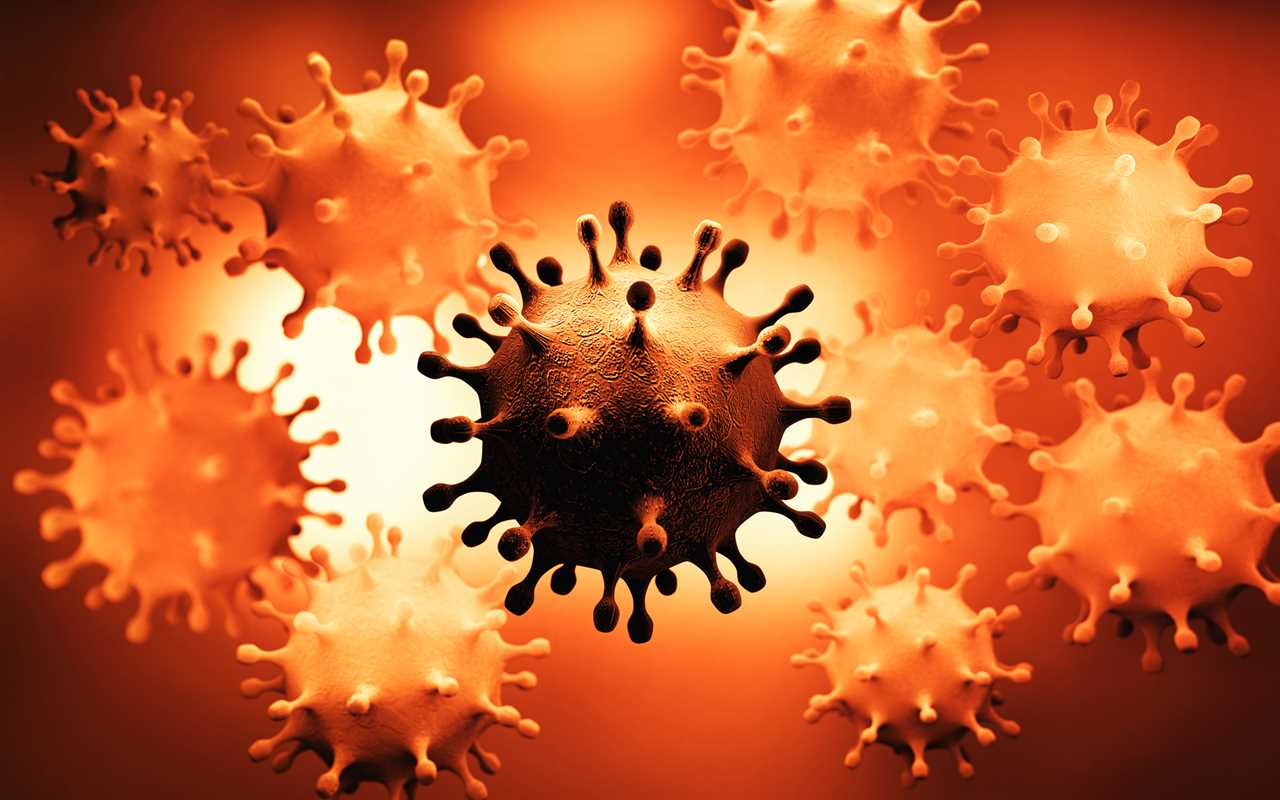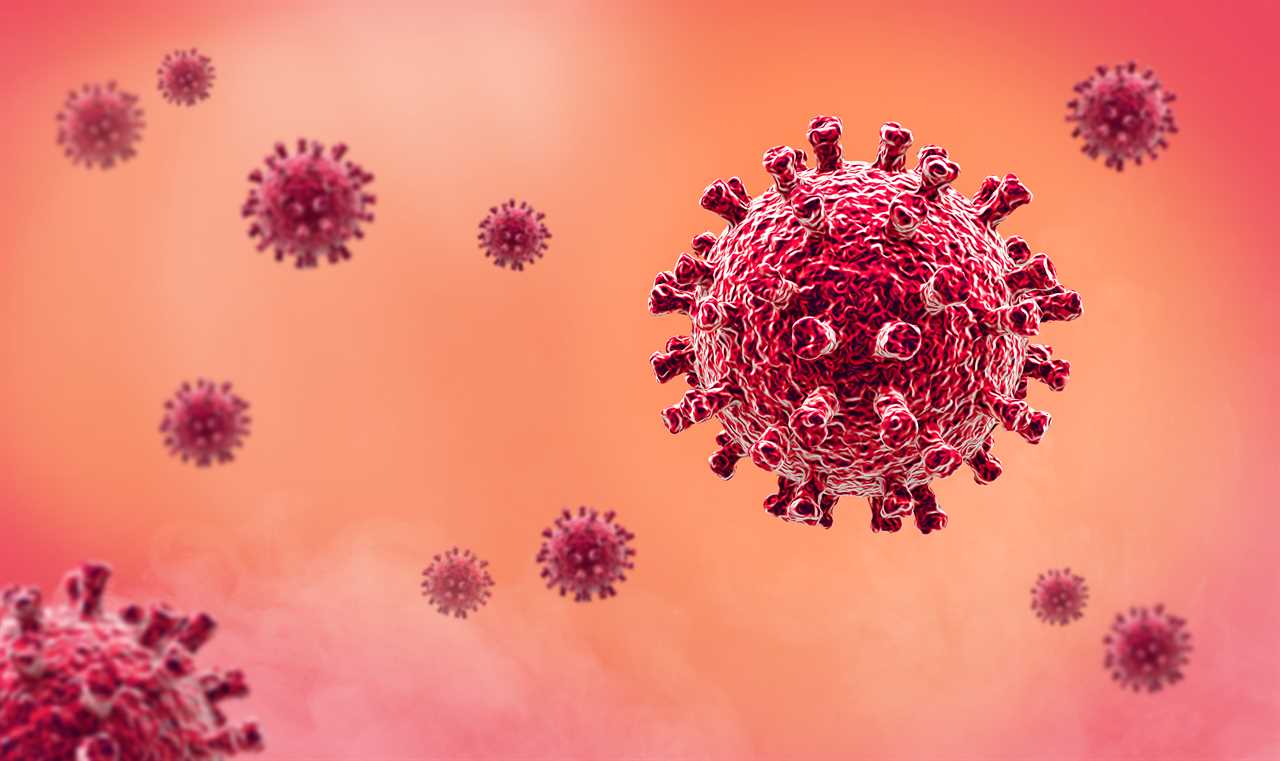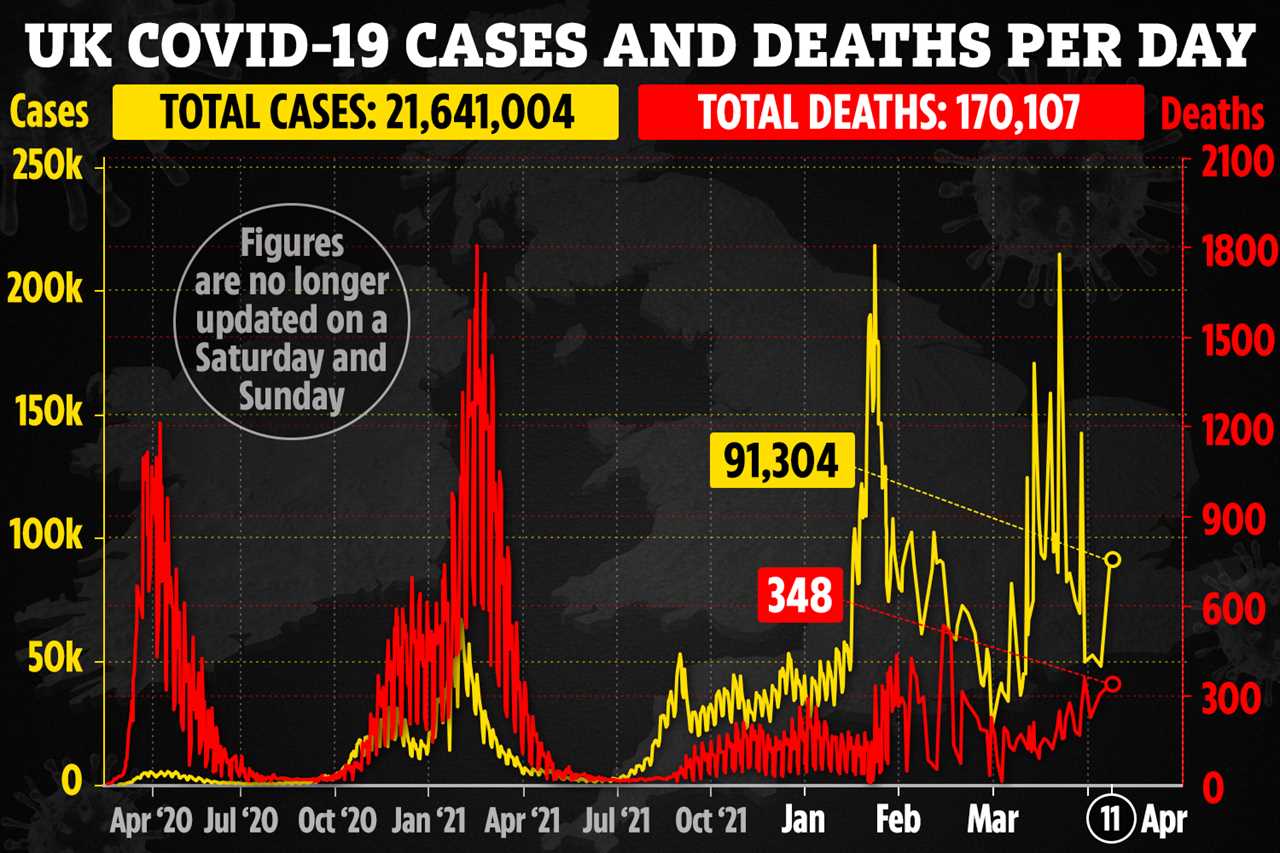CORONAVIRUS can present in many different ways and most people who catch Omicron will have cold-like symptoms.
But for some people, strange symptoms have appeared both during and after the infection period.

Catching coronavirus can leave you with cold-like symptoms, but some patients have experienced unusual signs
Usually symptoms clear up on their own as the body fights infection.
The NHS recently extended its full list of Covid symptoms after scaling back free testing.
Previously just three symptoms were listed, which were a high temperature, a loss of taste and smell and a new persistent cough.
Now there ate 12 symptoms listed on the website, but studies have found that there could be even more.
Here, we take a look at some of the more unusual symptoms Covid can cause that have not been listed by the NHS.
1. Covid toes
Doctors treating Covid-19 patients have reported seeing unusual cases where people have developed blisters and purple lesions on their feet.
It seems to be that anyone of any age can get Covid toes.
Although in reports it seems children and teens suffer more with the condition.
It can present as red, inflamed toes sometimes with a rash and this can be sore and itchy, with blisters and swelling.
The affected toes, although some fingers have been reported too, can look red or purple.
Some patients can also get raised painful bumps or pus.
It can last for weeks or months, often with people suffering from it not experiencing the classic Covid symptoms.
2. Burping
Burping “normally happens up to 30 times a day”, both audibly and silently, according to experts.
Burping tends to happens after eating, particularly foods like broccoli, apples, pears and bread, or drinking something fizzy.
Some people may experience more burping while sick with Covid.
Model Olivia Molly Rogers, former Miss Universe contestant from Australia, said she “couldn’t stop burping” while infected in January.
In some people it can last for several weeks as part of long Covid, research has shown.
A study highlighted by researchers in the Lancet medical journal found 44 per cent of hospital patients from China had stomach-related problems three months after their discharge.
3. Hearing loss
Experts previously reported a link between hearing loss and Covid-19, as many patients with long Covid had experienced hearing loss for months after contracting the virus.
Tinnitus is usually caused by an ear injury, age-related hearing loss or an underlying health condition.
Experts at Anglia Ruskin University (ARU) along with the British Tinnitus and American Tinnitus Associations previously found that 40 per cent of people displaying symptoms of Covid were also experiencing a worsening of their tinnitus.
Experts at the University of Manchester also found that there is a strong association between Covid-19, hearing loss and a loss of balance.
4. Smaller penis
Experts have said a shrinking penis is likely a result of erectile dysfunction that occurs due to virus infection.
A smaller penis was reported by 3.2 per cent of men in the King’s College study.
One anonymous man who has experienced erectile dysfunction and a reduced penis-size as a result of Covid called into the “How to Do It” podcast and said it had destroyed his self confidence.
Ashley Winter MD, a urologist in Portland, US, and associated with Kaiser Permanente, reassured men there are treatments that could help.
5. Sweating
Night sweats have been reported by some experts as a common feature of Omicron.
Speaking to ITV’s Lorraine, Dr Amir Khan said patients were experiencing “those kind of drenching night sweats where you might have to get up and change your clothes”.
It can leave your bed sheets and nightwear damp, or even soaking wet, even if the room you are sleeping in is cool.
This may be a cause of an embarrassment for those sharing a bed with a partner – although it’s likely only you will be aware of it.
6. Elevated heart rate
Experts at the British Heart Foundation said that your heart might beat faster is response to fever or inflammation due to Covid.
An increased heart rate is common if you have an infection as your heart has to work harder to pump more blood around your body to fight the infection.
The experts said that some people who have recovered from coronavirus have also experienced heart palpitations.
They said that in most scenarios the palpitations won’t be serious but if they sit alongside a faster heart rate, chest pain and dizziness, then you should seek medication attention.
7. Altered voice
Experts have also said that people who have coronavirus can suffer with a hoarse voice.
Dr Joseph Khabbaza said this is because inflammation is caused in the upper airway.
Speaking to Cleveland Health he said: “That includes the vocal cords. Laryngitis can occur with any of those viruses.
“When an upper respiratory tract infection affects the lungs, like Covid-19, you’re going to be coughing even more.
“You already have an inflamed throat and vocal cords from the infection and then the secondary coughing that occurs can be quite violent and further irritating.”
8. Mood swings
If you’ve previously had Covid and have been feeling a bit “off”, you might be able to blame the virus.
A King’s College study found a number of symptoms flagged by long Covid sufferers that related to a change in mood.
A quarter of people said they had more anger since their infection, while 7.4 per cent reported aggression.
9. Red or pink eyes
Irritated eyes can occur in some people with Covid infection.
The World Health Organization lists it as a less common symptom of the virus.
An early study, published in the BMJ Open Ophthalmology, found that of 83 Covid patients, 17 per cent had itchy eyes while 16 per cent had sore eyes.
![From Covid toe to burping – 9 unusual virus symptoms and side effects to spot]()
Read More on Trending In The News
It should clear up as you recover.
However, according to a King’s College study of long Covid, around 15 per cent of people reported “pink eye” (conjunctivitis), while the same figure had bloodshot eyes.











